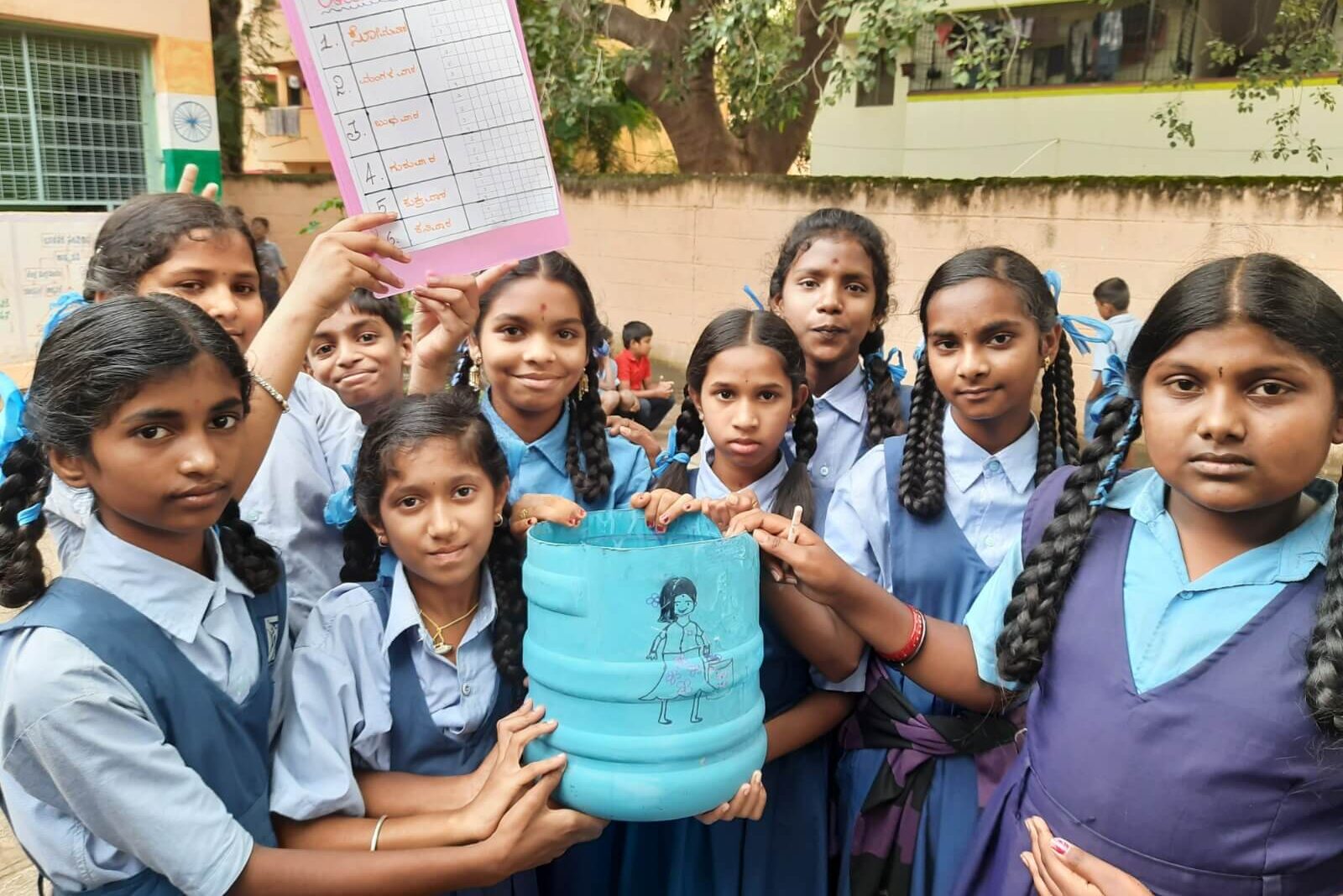Many residents of Bapujinagar in Bengaluru haven’t been able to exercise their right to vote in recent elections. The reason? Their names are not registered under the electoral list. Aggravated by the denial of helpless residents’ rights, Ashwaq and Farzan investigated to discover that their voter IDs were never made, despite promises and money being taken towards the same. The two local youths got their voter IDs registered and decided to take the lead by registering other residents on the electoral list. Till today, they have helped deliver voter IDs to 581 citizens’ doorsteps in and around Bapujinagar.
India is lauded to be one of the largest democracies in the world, despite a significant 33% of eligible voters being denied the right to vote. More than half of these disenfranchised populations belong to minority communities. The youth, forming up to 36% of eligible voters in some states, are now leading action in civic engagement and political participation.
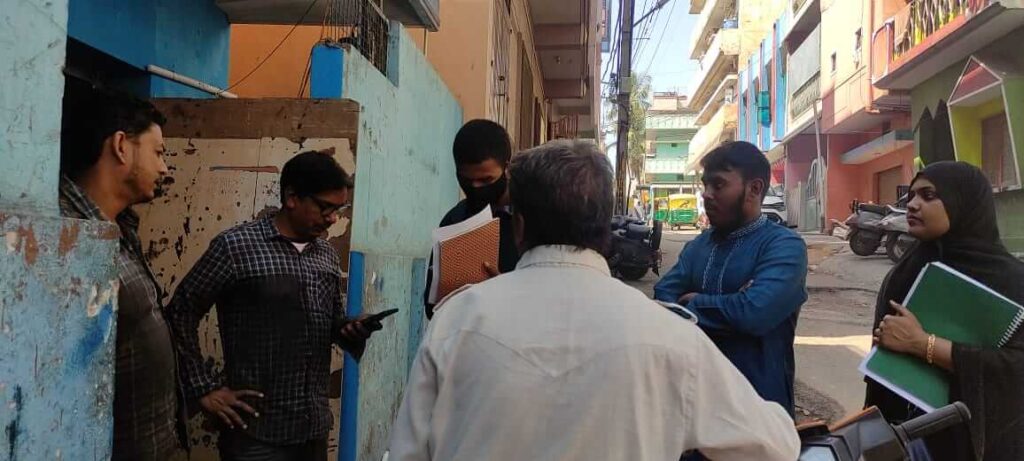
The challenges that may confront any society are multifarious and compounding, be it the lack of civic engagement, corruption, or climate change. Reap Benefit’s approach to tackling these challenges isolates a few main reasons for their persistence over time.
As a starting point, citizens are under-represented when it comes to problem-solving. Local problems are inextricably tied to the hyperlocal context they are set against, a layout best navigated and solved by the affected citizens. Ten years ago, the Janaagraha-Brown Indian Citizenship Study Index revealed that only 5.8% of respondents chose ‘being involved in your community’ as an important responsibility of citizenship. A ‘larger government’ would be one way to solve this, but India’s government is understaffed, with 4% of the workforce constituted by public officials in India, comparatively low against 13.5% in the US and 28% in China. For every 10,000 citizens in New York, there are 625 officials (population: 8.82 million) compared to only 83 in the state of Karnataka in India (population: 68.4 million).
The current generation needs to be skilled with 21st-century skills rapidly, a sentiment echoed by the latest National Education Policy. Reap Benefit, an NGO founded by Ashoka Fellow Kuldeep Dantewada, understands the power of young changemakers and puts them at the helm of civic and environmental ‘changemaking’. To catalyze justice-based movements, they believe India’s youth need to be equipped with a set of applicable skills that solve for their communities using technology across disciplines and processes.
Ashwaq and Farzan, for example, were made aware of their civic rights by the Solve Ninja Platform, an initiative by Reap Benefit. The Platform is a by-product of Reap Benefit’s vision to capitalize upon the inherent vigour, creativity, and drive of young citizens of India. It intends on empowering young minds to design justice-based innovations to solve social and environmental issues involving an active citizenry.
The Ninjas of Tomorrow
The Solve Ninja platform brings together India’s youth to stimulate tech-based changemaking around civic and climate change. Its vision and basis are formed by consistent action that is rooted in local contexts across languages and socio-economic backgrounds. The participants actively solving problems that affect the community around them are called Solve Ninjas, who are between 13 to 26 years of age. They channel changemaking through a three-tiered approach of a) acting on local data, to cultivate transparency and accountability in local governance; b) engaging in local campaigns, which brings together citizens and governance structures to solve local problems; and third, c) building local solutions to solve civic and climate issues, defying a one size fits all approach.
The platform aims to activate 10 million youth by 2030 to start addressing civic and climate issues in their local neighbourhoods.
“Under the Agricultural Heritage Mission, my team conducted a campaign to avoid burning stubble in 35 villages in Punjab. We first searched for those farmers who used to manage straw properly and could share their experience with other farmers. The campaign involved a round of meetings with farmers in the villages… street plays were performed,” says Hardeep Singh, a Solve Ninja. “Our goal was to save 9500 acres of land from fire. We have not only succeeded in this but we have exceeded our target and succeeded in saving the straw being burnt.”
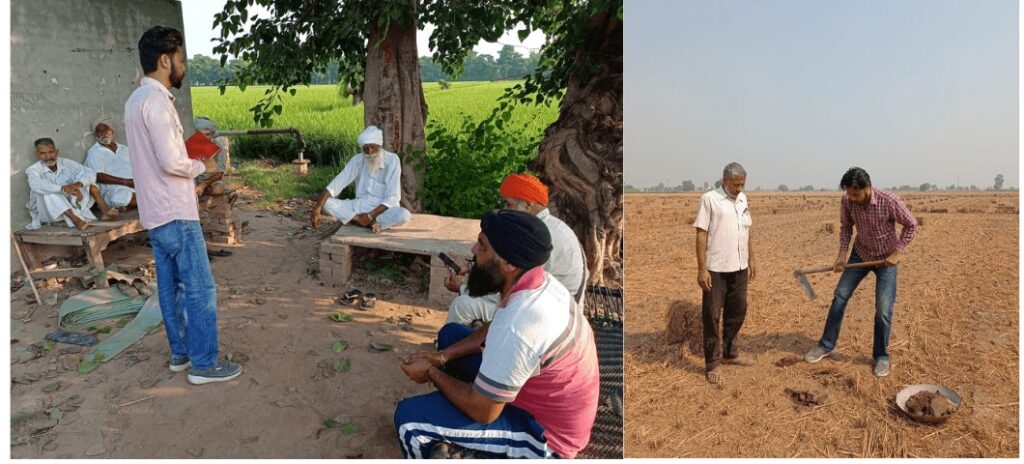
Setting Up the Platform and Accelerating Change
The Solve Ninja Platform has ‘hubs’ which are programs that act as a channel to induct and incubate Solve Ninjas in various programs for 3-6 months, They undergo a mentor-driven real societal issue-solving journey in these hubs. Reap Benefit sows the seeds of movement building by creating chapters or communities based on personas, societal issues, or location. These chapters, also known as spokes, function as bubble communities of young changemakers coming together to innovate solutions to civic and societal issues. These spokes make innovative tools and spaces for sharing knowledge, acting as repositories and contextual references for the use of data and technology.
The Platform also provides leadership opportunities to existing Solve Ninjas so that they can empower and invigorate youth in their communities. With community-tested knowledge kits, available crowdsourced data, and community leaders equipped with diverse skills, the Solve Ninja Platform integrates technology, people and knowledge with large-scale government systems and non-profit organizations to enable them to make targeted interventions regarding climate change, skill-building, and citizen engagement.
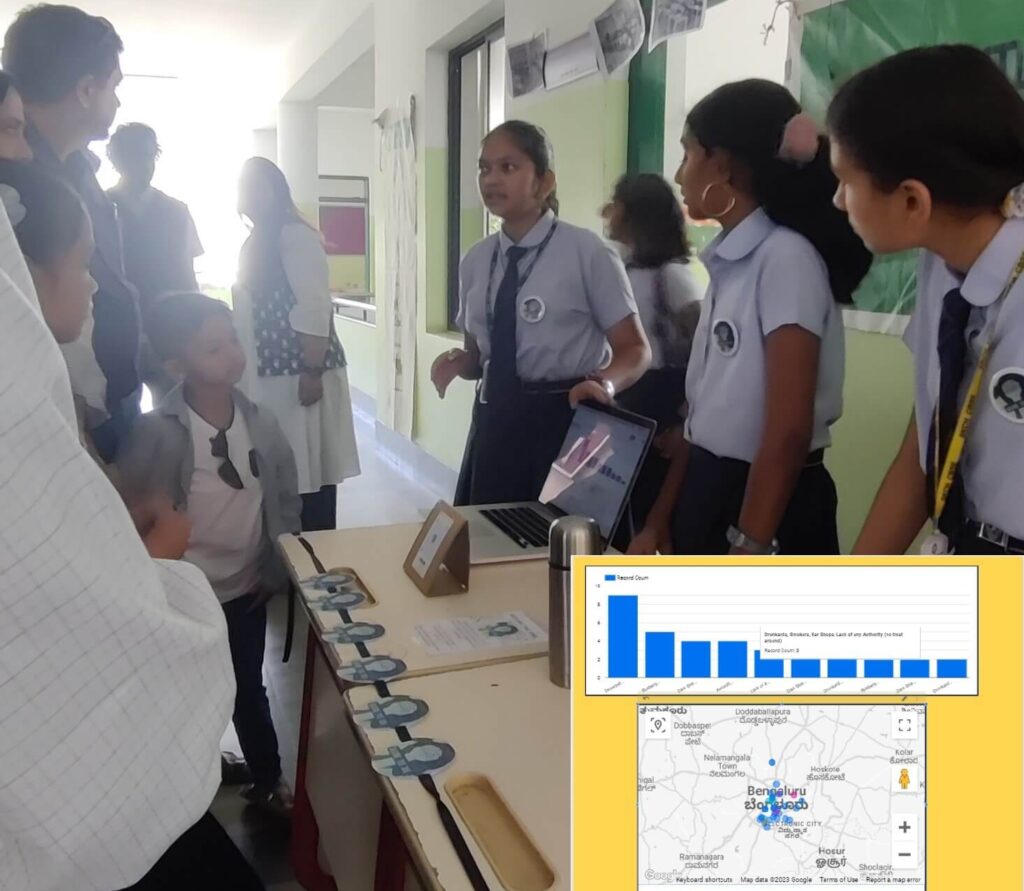
Having run a few cohorts of the Solve Ninja Platform, Reap Benefit have seen many Solve Ninjas bringing about systemic impact through solutions for critical societal issues, at scale and in-depth. To help them in their journey, Solve Ninja Platform also offered a Solve Ninja Leadership Accelerator to provide the additional support required to be a civic leader. This accelerator program is for enterprising youth between 18 and 24 years of age, who either have a deep interest or a demonstrated history of engaging in climate and civic public problem-solving.
The accelerator program spans six months and provides opportunities for scaling impact through mentorship on how to apply design thinking and problem-solving frameworks to each problem statement. Then, Ninjas are guided to test and apply 3 to 4 prototype solutions, all the while having 1-1 mentorship for designing ways to scale solutions or tackle problems at a deeper level. They learn and practice storytelling and communication and build leadership skills through reflection, active listening, mindfulness, and practicing empathy. Besides learning from experts, Ninjas in the Accelerator are supported by a cohort of like-minded peers embarking on a similar journey.
100+ civic leaders have graduated from this leadership program, with 25 participants being selected in each cohort from applications across 15 states. 52% of these participants were women leaders and 44% were from rural communities that were working on climate-based solutions, women’s rights, and sustainable farming.
Learnings for the Future
Solve Ninja measured the programme’s success feedback from participants and promoters, as well as the number of people reached, funds raised, media mentions, and startups associated with each Ninja’s initiative. Scaling youth-led impact is impossible without measuring reasonable milestones, outputs, and deliverables.
At a programmatic level, there are four important levers for youth engaging the youth in solving local problems.
- Network of Local Mentors: As young changemakers discovered, investigated and researched existing solutions to build new ones, their vertical and horizontal scale were fostered by domain experts and professional/strategic mentors.
- Knowledge Toolkits and Solutions: Solve Ninja Platform’s 38 playbooks with different ways to solve 38 different civic and environmental problems across five thematic areas: waste, water, sanitation, energy and citizenship—helped the young changemakers with direction and stimulus, all the while sparking their creativity to come up with new ventures.
- Peer Community: The lack of a visible and accessible peer community is often what leaves young leaders out to dry. Solve Ninjas could collaborate with other like-minded leaders to create groups to address local issues and learn from community leaders, government officials, NGOs’ founders, and local politicians.
- Consistent Behavioural Nudges: The Platform through its gamification approach initiated action, and gave constant reinforcement to young changemakers’ initiatives. This approach boosted their changemaking muscle to sustain and scale up their initiatives.
Reflecting on her experience, Sanskriti, a Solve Ninja from Hyderabad says, “A major takeaway was seeking inspiration from each Solve Ninja’s story. I now have a community to fall back on for days I feel discouraged. I thought I was looking for answers when I enrolled in the program… Now, I realize that I returned with a lot of clear questions and the tools to solve them with confidence.”
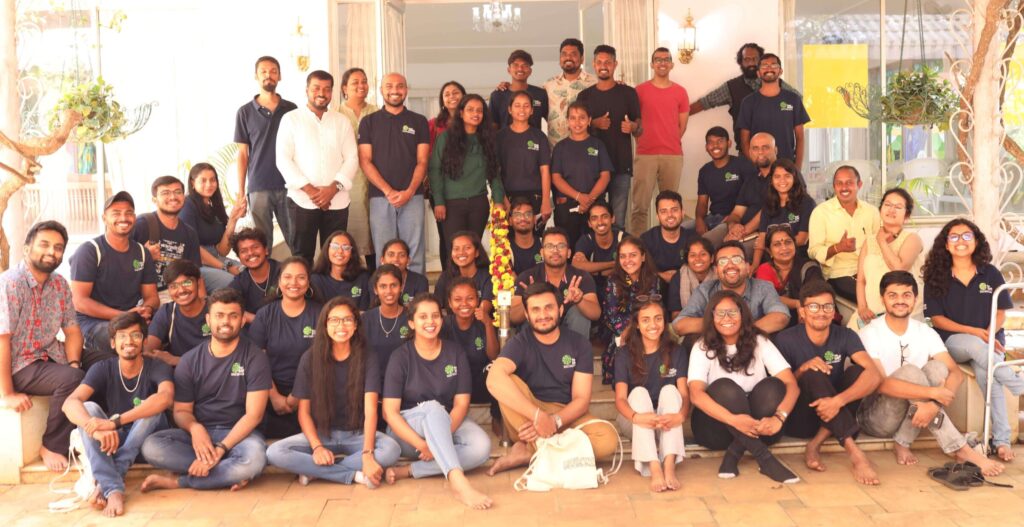
At an ecosystem level, young leaders like Sanskriti proved to be innovative problem-solvers, partly owing to their flexibility, high energy, and fresh perspectives. The leadership accelerator programme coupled with financial support helped them build holistic solutions to local issues alongside their communities.
Besides the transition from in-person to virtual settings posed hurdles for designing and executing the program, avenues for funding youth-led changemaking have slowed down post COVID-19. It can also be difficult to find observable behavioural changes immediately post interventions. Programs similar to the Solve Ninja Platform will do well to pay heed to the persistence of substantial resistance when it comes to communities trusting youth leaders because they are often seen as experiments rather than visionaries. Pre-existing societal norms can be inertial to progress, and a lack of buy-in from potential investors further impedes young citizens like Ashwaq from exercising their changemaking muscles.
This is the third story in a four-part collaboration with Ashoka’s Law for All Initiative, highlighting insights from their work with partners and collaborators who strengthen young changemakers’ innovations in law and justice space across India. Law for All is one of the strategic focus areas for Ashoka in South Asia. Read Parts One and Two here.
Featured image of students conducting a water audit in school courtesy Reap Benefit


